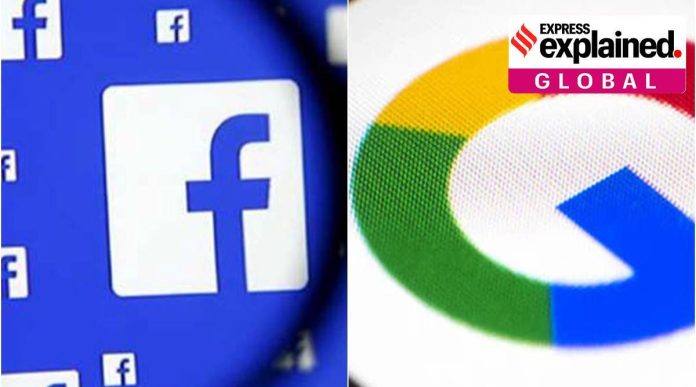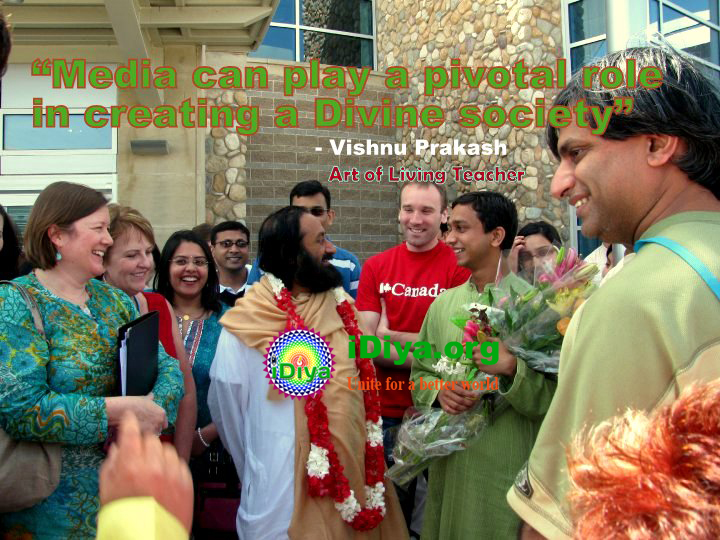Australia could soon pass a law to force Google and Facebook to pay media firms for news reports that appear on these platforms. The tech giants have refused flatly, and issued grim warnings about the fallout such a step might have.
As a final version of a legislation calling on tech giants to compensate media firms for news reports takes shape in Australia, Facebook has threatened to block the country’s publishers and individuals from sharing news stories on the platform.On September 7, Prime Minister Scott Morrison said he expected a “sensible outcome” to his government’s plans to make digital platforms pay for journalism.
What sparked the standoff?
Since January 2019, poor advertising revenues have forced over 200 news organisations in Australia to close temporarily or permanently shut down, according to the Australian Newsroom Mapping Project, and the Covid-induced slowdown has compounded the industry’s problems.following an inquiry last year, which found that platforms such as Google and Facebook were bagging “too large a share” of the online advertising profits from media organizations in Australia, the government proposed the draft News Media Bargaining Code law in July this year.Drafted by the Australian Competition and Consumer Commission, the country’s competition regulator, the code is aimed at providing a “level playing field” to local news publishers.What does the draft code propose?
The code urges tech giants Google and Facebook to pay for Australian news content that appears on their news feed and searches.If implemented, it will allow media firms to negotiate a price for their content with the digital services, and if the two parties do not agree to an amount, arbitrators would be appointed to take a call.The legislation also calls upon Facebook and Google to notify news companies in case of a change of algorithms – which could decide which stories appear on top of a search – with penalties of up to 10% of a platform’s annual turnover in case of non-compliance.
As per the Australian government’s website, August 28 was the last date for “all interested parties to provide their views on the draft code”.The country’s Treasurer Josh Frydenberg has said that he hopes Parliament will pass the legislation — which focuses on Facebook and Google for now, but could be expanded to other digital platforms too — this year.The code has been backed by all major news firms including News Corp Australia, the country’s largest conglomerate, Nine Entertainment, and Guardian Australia, among others.
What was Facebook and Google’s response ?
Both companies have strongly opposed the legislation. Last month, Google published an open letter – which was linked to its homepage in Australia — that said the new law could “hurt how Australians use Google Search and YouTube”.“It could lead to your data being handed over to big news businesses, and would put the free services you use at risk in Australia,” said Melanie Silva, Managing Director for Google Australia and New Zealand.
Silva had warned earlier that the government’s “heavy-handed intervention threatens to impede Australia’s digital economy and impacts the services we can deliver to Australians”.In a blog post on August 31, Will Easton, Managing Director, Facebook Australia and New Zealand, wrote: “Australia is drafting a new regulation that misunderstands the dynamics of the Internet and will do damage to the very news organisations the government is trying to protect… Assuming this draft code becomes law, we will reluctantly stop allowing publishers and people in Australia from sharing local and international news on Facebook and Instagram.
But why are Facebook and Google opposed to the code?
Facebook has argued that news reports make up “only a fraction” of what the platform’s users get in their feeds, and that it is already driving a large amount to traffic to news websites – numbers which in turn help them seek revenues from advertisers.“Over the first five months of 2020 we sent 2.3 billion clicks from Facebook’s News Feed back to Australian news websites at no charge — additional traffic worth an estimated $200 million AUD to Australian publishers,” Easton wrote in his post.
Google has claimed that the law is skewed in favour of big media companies and will end up giving them “special treatment”, and “encourage them to make enormous and unreasonable demands that would put our free services at risk”.Also in Explained | What is the ‘Thin Blue Line flag’, embraced by right wing supporters in the US?And what is the government’s defence?Defending the draft code, Australia’s Competition and Consumer Commission chair Rod Sims told The Guardian: “The draft media bargaining code aims to ensure Australian news businesses, including independent, community and regional media, can get a seat at the table for fair negotiations with Facebook and Google.”
Countering Facebook’s claim that news is “only a fraction” of its content, he said, “We note that according to the University of Canberra’s 2020 Digital News Report, 39% of Australians use Facebook for general news, and 49% use Facebook for news about Covid-19.”What if Facebook actually follows through with its threat? In the absence of news reports from credible sources, say experts, proliferation of fake news and disinformation could be major concerns. Facebook has already been under fire for fake news for some time now.
Google has warned that the new law would force the platform to “make its services dramatically worse”.However, the Australian government seems unlikely to blink. “The tech giants have a history of making heavy-handed threats on public policy issues… But we’re not going to be distracted by that,” the country’s Communications Minister Paul Fletcher told the Australian Broadcasting Corporation.
Do other countries have such a law?In 2014, Spain passed a “snippet tax” that called on news outlets in the country to charge Google for headlines (or snippets) of their stories appearing on Google News. The outcome was that even now “Spanish publishers aren’t featured in Google News and Google News is closed in Spain.Google has often said that it does not pay for news content as “a matter of policy”.
In March last year, the European Union introduced new online copyright rules to help news publishers and tech giants strike deals for sharing content.In France, where the legislation was first implemented, Google did not agree to pay publishers, and said instead that they would only display thumbnail images of stories if provided to them for free, leaving many news firms disappointed.
In Germany too, the company has adopted the same policy.Last year, the Journalism Competition and Preservation Act of 2019 was introduced in the United States Congress for the “publishers of online content to collectively negotiate with dominant online platforms regarding the terms on which their content may be distributed”.Now, all eyes are on the Australian government. If the draft code becomes law, it could be a precedent for similar legislation in other countries too.
by Ankita Dwivedi Johri











